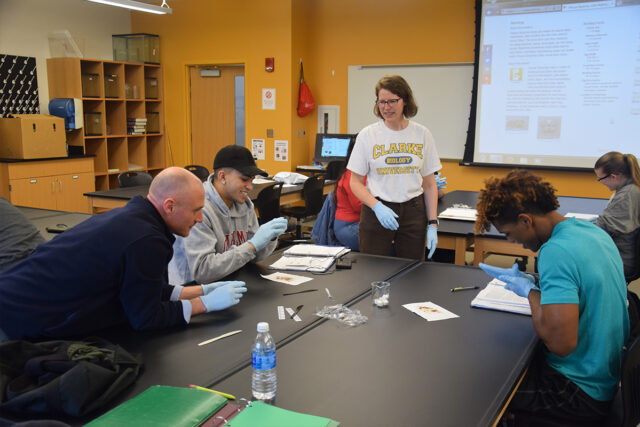Clarke Biology Professor Bixler Publishes Research Study

Clarke University’s Professor of Biology Andrea Bixler, Ph.D., recently published a study along with Fred Schnee, Ph.D., Associate Professor of Biology at Loras College. The piece is entitled, “The Effects of the Timing of Exposure to Cadmium on the Oviposition Behavior of Drosophila Melanogaster.” The article was published by the journal Biometals and can be viewed here.
The piece details Bixler and Schnee’s work on the effects of cadmium(Cd), a heavy metal that can cause neurological damage, cancer, and other health problems, on fruit fly egg-laying behavior. Fruit flies are a commonly-used model organism because they are small and easy to house, have a short lifespan, and have well-understood behaviors and genetics.
Unique to their work is testing flies that had been exposed to cadmium continuously from egg to adult, only during pre-adult stages, or for the four days of adulthood prior to testing. They found that flies avoid laying eggs on cadmium-contaminated medium and also that flies exposed to cadmium as adults laid significantly fewer eggs than controls never exposed to Cd. They did not observe consistent changes in egg-laying as a result of pre-adult exposure alone.
Bixler said, “Our results suggest that the presence of cadmium in the environment, even at low doses and for short periods of time during adulthood, can harm the survival and reproduction of fruit flies. Our data should also encourage researchers working with other species, including humans, to examine the importance of the schedule of exposure to contaminants and whether that is affected by the sex of the individuals. Such complex relationships between exposure, age, sex, and perhaps other factors would be easy to miss without more complicated experimental designs (like the one we used) but are well worth understanding.”
